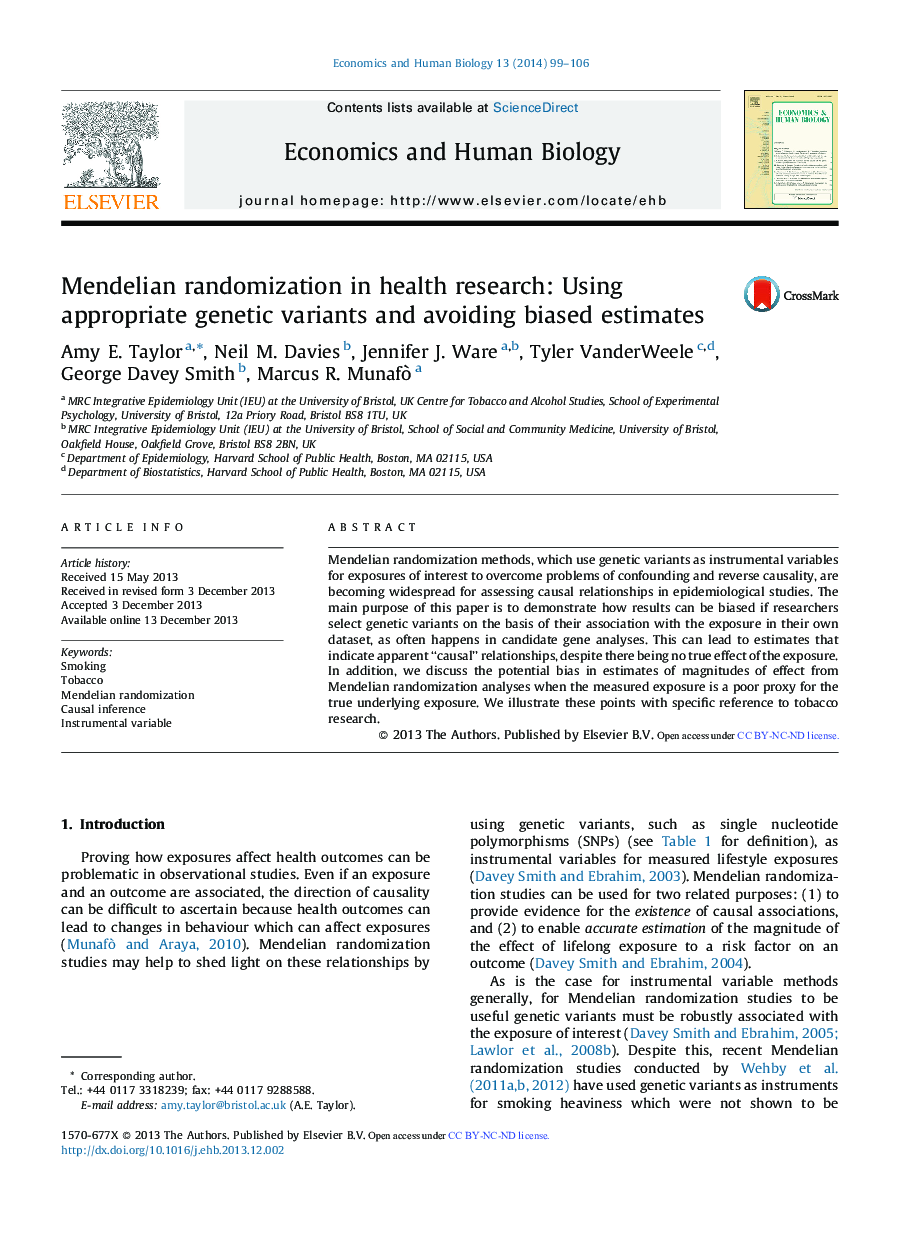| Article ID | Journal | Published Year | Pages | File Type |
|---|---|---|---|---|
| 5057069 | Economics & Human Biology | 2014 | 8 Pages |
â¢We model potential biases that may arise in Mendelian randomization analysis.â¢Genetic variants should robustly associate with exposures in independent samples.â¢If not, Mendelian randomization can suggest causality despite no true associations.
Mendelian randomization methods, which use genetic variants as instrumental variables for exposures of interest to overcome problems of confounding and reverse causality, are becoming widespread for assessing causal relationships in epidemiological studies. The main purpose of this paper is to demonstrate how results can be biased if researchers select genetic variants on the basis of their association with the exposure in their own dataset, as often happens in candidate gene analyses. This can lead to estimates that indicate apparent “causal” relationships, despite there being no true effect of the exposure. In addition, we discuss the potential bias in estimates of magnitudes of effect from Mendelian randomization analyses when the measured exposure is a poor proxy for the true underlying exposure. We illustrate these points with specific reference to tobacco research.
